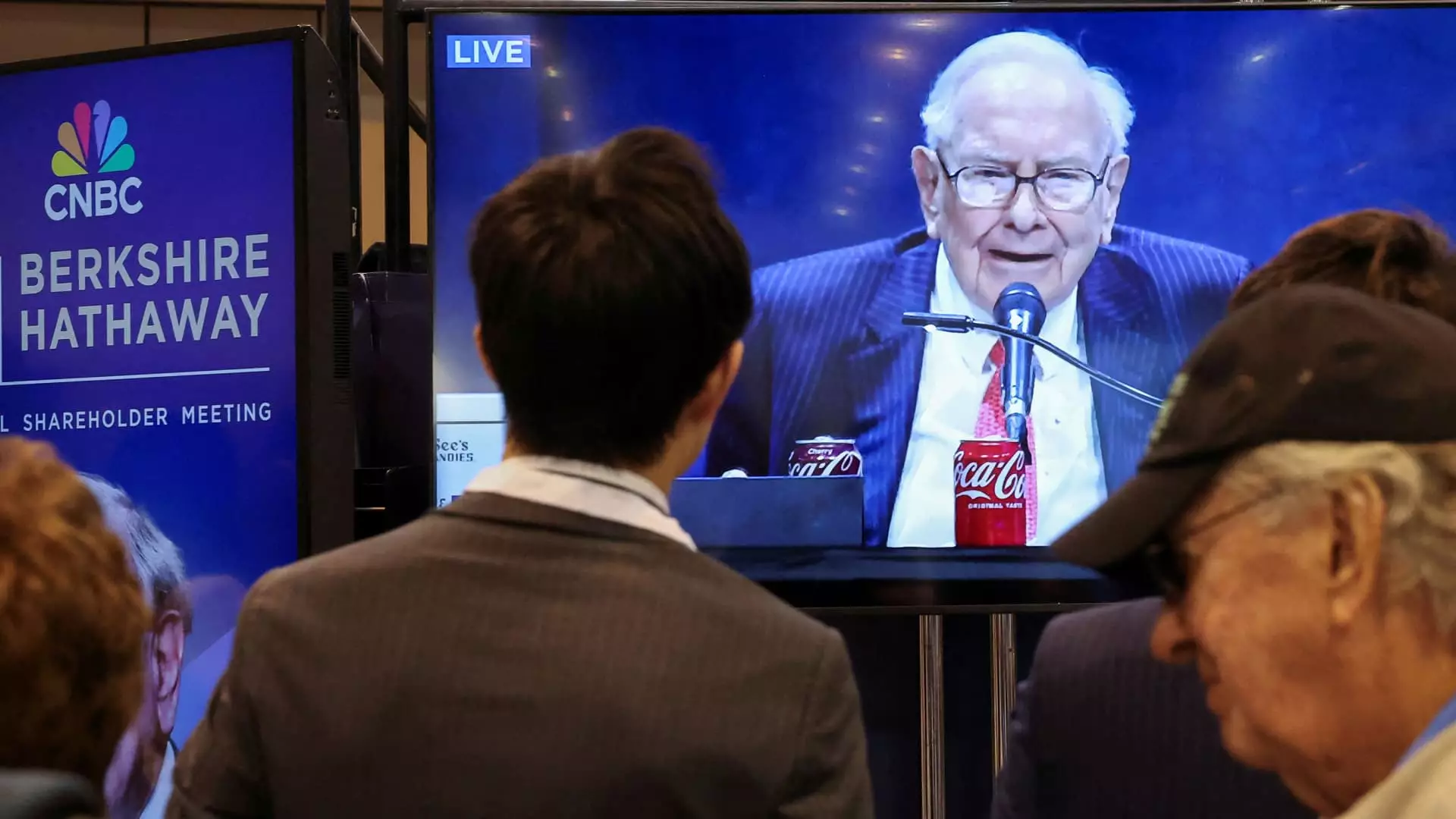Last week, the investment world was shaken by Warren Buffett’s unexpected declaration during Berkshire Hathaway’s annual meeting in Omaha, Nebraska. For 60 years, Buffett, the Oracle of Omaha, has been a beacon of financial wisdom and corporate success, steering Berkshire from a struggling textile manufacturer to an investment titan with a market valuation nearing $1.2 trillion. In a bold move, he announced that Greg Abel, the company’s vice chairman responsible for non-insurance operations, will take on the role of CEO in January 2026, while Buffett will retain his position as chairman.
This pivotal transition inevitably raises questions about the future direction of a conglomerate that has become synonymous with Buffett’s ingenious investment philosophy. The market reacted swiftly, as evidenced by a 5.3% drop in Class A shares to approximately $767,000, shortly after the announcement. The decline followed a record closing price of $809,350 just days prior. In the days leading up to the meeting, excitement was palpable as shares reached unprecedented heights, only to experience a sharp correction in the wake of this seismic shift in leadership.
Investor Sentiment: Embracing Change
Despite the immediate market response, many analysts, including Macrae Sykes from Gabelli Funds, argue that this transition should be viewed positively. Sykes emphasized that Buffett’s continued role as chairman will allow him to mentor Abel and maintain a crucial intellectual presence during Berkshire’s future decision-making processes. This perspective fosters a sense of optimism among long-term investors who have seen Berkshire endure tumultuous times before, positioning the company for continued growth and stability.
Buffett’s looming absence creates a vacuum that may unsettle some investors used to his iconic leadership. Yet, many believe that the essence of Berkshire—characterized by its diverse portfolio and resilient business operations—will remain intact under Abel’s stewardship. This belief is bolstered by the company’s diminishing reliance on Buffett’s personal investing prowess, thanks to its solid cash flows and operational foundations in its multitude of owned businesses.
Market Reality: The Stocks Readjust
The tumult surrounding the leadership transition coincides with broader concerns in the market; Berkshire’s first-quarter results revealed a 14% decline in operating earnings, spurred largely by a staggering 48.6% drop in insurance underwriting profits. A significant factor behind this decline was a $1.1 billion loss attributed to the Southern California wildfires, underscoring the inherent risks that accompany Berkshire’s extensive insurance operations.
While the falling profits are cause for concern, it is essential to contextualize these figures within the framework of Berkshire’s long-term performance. The company’s shares have outperformed the S&P 500, with a nearly 19% rise in value this year. The juxtaposition of strong year-to-date stock performance against current operational challenges illustrates the complexities involved in investing in a legacy like Berkshire Hathaway.
The New Direction: What Lies Ahead for Berkshire Hathaway?
As Greg Abel prepares to assume the mantle of leadership, the future prospects of Berkshire Hathaway will hinge on maintaining its unique business culture and investment strategy. Analysts predict that not much will change operationally, which may provide a reassuring sentiment for stakeholders. However, there are undoubtedly challenges inherent in transitioning from a storied leader like Buffett to a new generation of leadership.
Abel’s ascent marks not just a transition in titles but a potential shift in investment philosophy. He has been tasked with upholding and expanding the values and principles that have guided Berkshire for decades. This involves navigating through turbulent economic waters, making astute acquisitions, and harnessing the strengths of the business portfolio, which includes insurance, energy, railroads, and retail.
Moreover, the evolving landscape of investing, shaped by advancements in technology and shifts in consumer behavior, presents an exciting yet unpredictable array of opportunities and challenges. Investors and analysts will be closely monitoring how Abel positions Berkshire amidst these changes as the company looks to retain its status as a stalwart in the investment community.
Buffett’s departure, while profound, is also a signal of resilience and adaptability. Berkshire Hathaway’s longstanding traditions will face new challenges, but with a solid foundation and a capable successor, the conglomerate is poised for a new chapter of growth.

